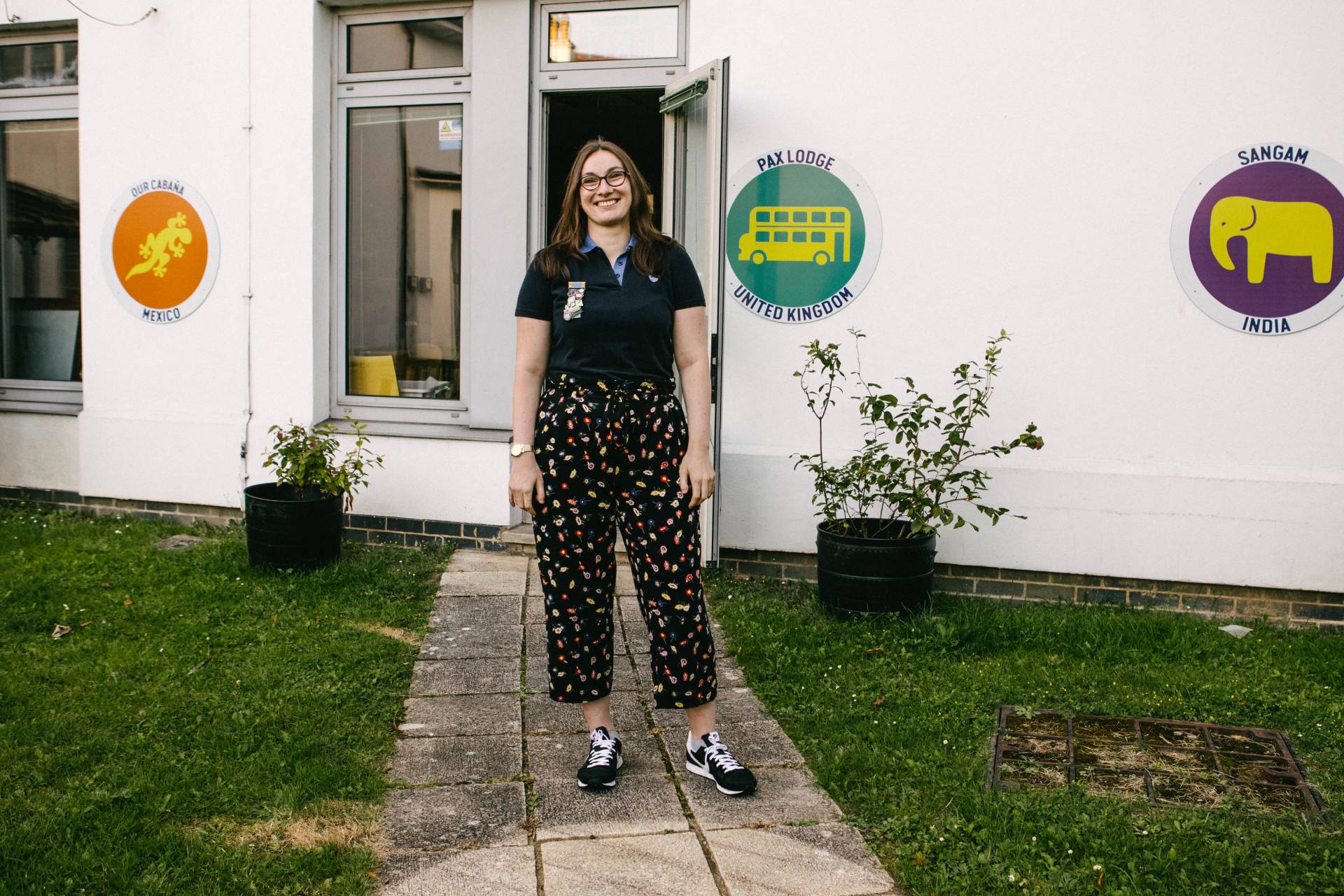Girlguiding is a charitable organisation that supports girls to thrive and in turn help their communities. Spread over 150 countries across the world, Girlguiding has 300,000 young members and 100,000 volunteers. Pax Lodge, located in between Hampstead and Belsize Park, is one of the five world centres and part of World Association of Girlguides and Girlscouts (WAGS).
We spoke to Tash Wilcock, one of the volunteers at Pax Lodge, has been a guiding member since she was five years old. For the last six years has been volunteering her time and expertise into the Girlguiding programme, and now leads the Rainbow (ages five to seven) and Guides (age 10 to 14) groups.

Tash, a 24-year-old doctor, decided to become a volunteer when she moved for university. “I was studying at UCL and I knew that I really wanted to get involved when I moved to Camden. It’s such a diverse area, and there’s such an amazing variety of people,” she says. The girls and young women at Pax Lodge are given the opportunity to learn a diverse set of skills, from camping and cooking to advocacy, science, vlogging and more.
The groups also pledge to serve the community. In the last year they visited a local dementia specialist care home to distribute their handmade Christmas cards. “The girls are 12 years old, they may never have met a person with dementia. They’ll kneel down next to them, talk to them and ask about their lives. That’s really special, that intergenerational aspect”, Tash says.
“It’s so important that there’s no child who feels excluded from Guiding because of their family’s financial background.”
Putting lived experience at the heart of teaching
Girlguiding covers a huge variety of skills and learning. No two groups will have the same experience as it is dependent on the expertise and lived experience of the leader and the members that make up the group.
For Tash, social justice and disability awareness are central focuses, and she aims to share her passion around these areas with the girls. “One in four people in the UK has some kind of disability. And there’s so much stigma around it,” she says. Tash is Deaf and uses her experiences to help raise awareness among the members. “I’m really passionate about Deaf awareness and disability awareness. We do a lot about removing the stigma of disability, getting them to be really understanding and supportive. They all know a little bit of sign language that I’ve taught them, and they all understand about Deaf community and culture.”
The advantage of this approach is it breaks down the ‘us and them’ barriers and enables members to learn inclusivity. Tash also uses her professional skills as a doctor to support the members in leading discussions about their needs. “We had a girl with epilepsy, and she wanted to teach awareness. They want to do that, they want to educate their friends and other young people,” she says.
Connecting to the world
As the pandemic took hold, Tash found that they had to connect with members in different ways. “We’ve become much more part of their family network. I’ve been doing a lot of doorstep visits, dropping things off, posting birthday cards. We’ve been Zooming into their homes at least once a week,” she says.
This interconnectedness also gave rise to activism, as the members took action to help save ZIP cards, which enable free travel for under 16s. Tash explains, “That would have really negatively affected a lot of young people in London. So we did a kind of virtual protest, they made protest signs.” One of the Deputy Mayors of London was eventually invited to a Zoom call to hear the viewpoints of the girls.
Equal opportunity for all
Girlguiding is entirely volunteer run and additional financial support is provided by grants. “It’s so important that there’s no child who feels excluded from Guiding because of their family’s financial background,” Tash says. Grants cover the basic programme, but also extras such as sleeping bags or suitcases for overnight trips away. For some children, this may be their first holiday. “That’s the thing I’m kind of proudest of our group, and our young people – just how diverse it is,” she says.
Young leaders
Guiding has also been an illuminating experience for Tash, as she explains. “As you spend more time with teenagers, you see how incredible they are as people and how wrong the general perception of them is.” Young women who graduated as Rangers (age 14 to 18) will often come back to volunteer with the younger groups. “They’re the most incredible leaders, they’ll run whole sessions themselves,” Tash says, before adding that it’s “always a moment of immense pride.”
Photo credits: Karishma Puri
